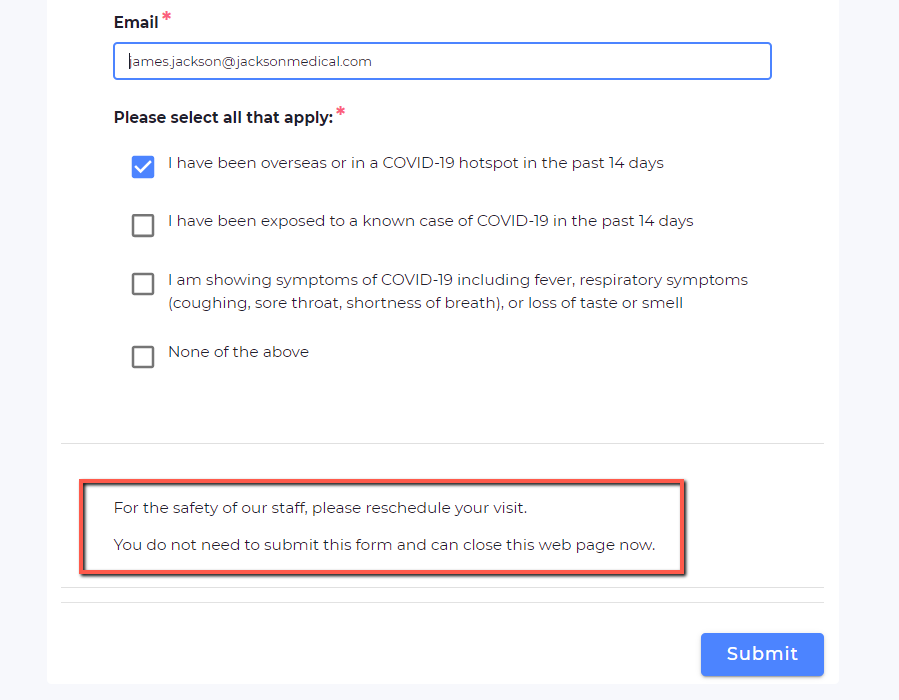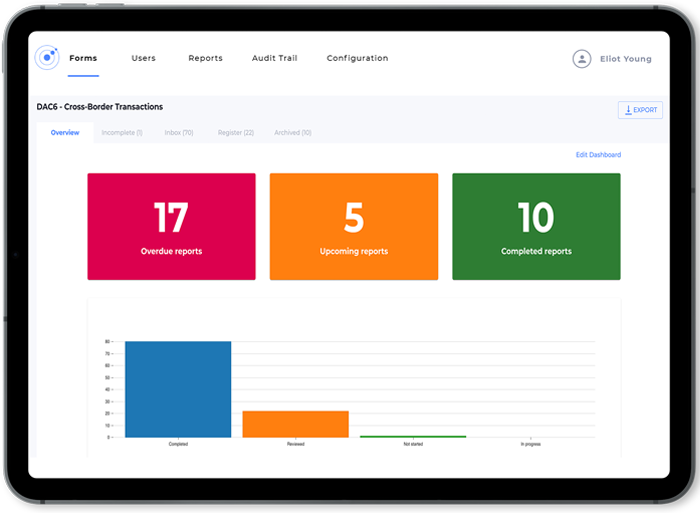
The UK continues to take steps to re-open the economy following lockdown in the first half of the year. The government is encouraging companies to get back to the office and people back into shops, bars and restaurants, helped in part by the Business and Planning Act. However, government guidelines state that employees and visitors should not visit an office if they or a member of their household are showing symptoms of coronavirus.
As businesses are looking to return to as close to “normal” as possible, it is important to ensure you take all appropriate actions to mitigate the risk of a coronavirus outbreak in the office. This requires that a register be kept of all visitors to the office and that visitors confirm that they are following these guidelines.
The spread of COVID-19 can be mitigated by ensuring visitors to the office:
- Have not been overseas in the past 14 days
- Have not been exposed to a known case of COVID-19 in the past 14 days
- Are not showing symptoms of COVID-19 including fever, respiratory symptoms (coughing, sore throat, shortness of breath), or loss of taste or smell
During such uncertain and unprecedented times, where a case of coronavirus in the office can cause serious health concerns and serious impact the business, a simple sign-up sheet at the front desk will not suffice. Such a system makes it difficult to keep track of the contact details of all visitors and ensure they are compliant with best practice. Collecting the contact information of visitors is also helpful for instances in which an employee who was in the office at the same time as the visitor contracts coronavirus. In such a case, anyone who was in the same room as the individual in the previous two weeks should be informed. Having a centralised reporting tool in place makes it easier to get the contact information of everyone who needs to be informed.
How does the COVID-19 visitor portal help?

VinciWorks has created a centralised reporting tool, hosted by reporting and tracking tool Omnitrack, to easily monitor visitors to the office. Each visitor is asked to confirm that they adhere to the government guidelines for visiting the office. The visitors are encouraged to only submit the form if they are able to adhere to the guidelines. Anyone who submits the form who is not compliant with the company’s rules can be automatically flagged so that no one slips through the cracks. Automatic reminder emails (nagware) can be set up to remind visitors to complete the form.
The form can easily be customised to include any other questions, a company logo or text specific to the company.
What is Omnitrack?
Many organisations use email or spreadsheets to track information. These approaches lack structure and security. Collecting information over email invariably leads to inconsistent responses, missing information and lack of structure. Spreadsheets are limited by their two-dimensional nature, lack of automation tools and lack of security. Omnitrack is a centralised reporting and tracking tool. It allows anyone to identify a risk, complete staff surveys or carry out reporting requirements.
Omnitrack can either be implemented to manage a primary compliance discipline or can be scaled up to cover all your business’ compliance and reporting needs.













